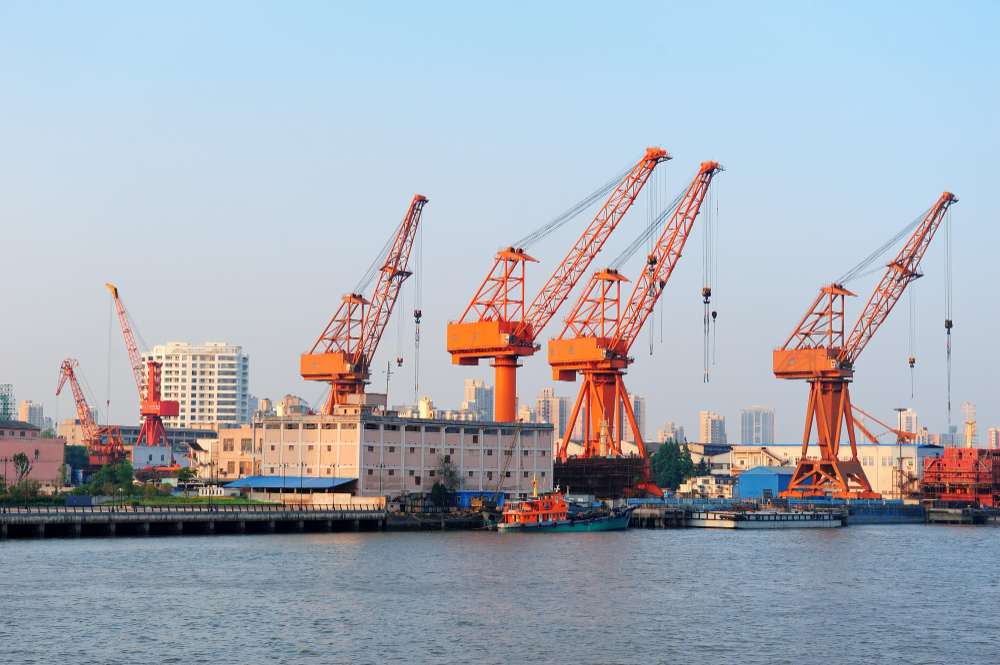China Trade Policy Review: Exploring Economic Strategies
Category: Chinese chance Date: 2024-09-29 Views: 2
Over the past few decades, China's trade policy has undergone significant transformations,
shifting from a closed, centrally planned economy to a more open and market-oriented one. The country's current trade policy prioritizes economic growth, international trade expansion, and foreign investment attraction. As a member of the World Trade Organization (WTO), China actively participates in international trade negotiations.
A crucial component of China's trade policy is its emphasis on export-led growth. The country has become renowned for its substantial trade surpluses, particularly with the United States and other developed nations. To promote exports, China has implemented various policies, including providing subsidies to exporters and maintaining a relatively weak currency to enhance the competitiveness of its goods in international markets.
Attracting foreign investment is another vital aspect of China's trade policy. The country has introduced several policies to encourage foreign companies to invest in China, including offering tax incentives, providing access to low-cost labor, and establishing special economic zones with preferential treatment for foreign investors.

Impact of China's Trade Policy on Global Economy
China's trade policy has had a significant impact on the global economy. The country's rapid economic growth and increasing integration into the global economy have made it a major player in international trade. China is now the world's largest exporter and second-largest importer, and its trade policies have had far-reaching effects on global supply chains and commodity markets.
One of the most significant impacts of China's trade policy has been its effect on global manufacturing. The country's low-cost labor and large-scale production capabilities have made it a major hub for manufacturing, particularly in industries such as electronics, textiles, and machinery. This has led to a shift in global production patterns, with many companies moving their manufacturing operations to China in order to take advantage of its low production costs.
China's trade policy has also had a significant impact on global commodity markets. The country's rapid industrialization and urbanization have led to a surge in demand for raw materials such as oil, coal, and metals. This has driven up global commodity prices and has had a major impact on commodity-exporting countries around the world.
China's Economic Strategies in International Trade
China has implemented a number of economic strategies in its international trade policy in order to promote economic growth and increase its competitiveness in global markets. One of the key strategies that China has pursued is the development of special economic zones (SEZs). These zones offer preferential treatment to foreign investors, including tax incentives, streamlined regulations, and access to cheap labor.
This has helped to attract foreign investment and promote economic development in these areas. Another important economic strategy that China has pursued is the development of its infrastructure. The country has invested heavily in building roads, ports, and other transportation facilities in order to improve its connectivity with the rest of the world.
This has helped to reduce transportation costs and improve the efficiency of China's international trade. China has also focused on developing its human capital in order to increase its competitiveness in international trade. The country has invested heavily in education and training programs in order to develop a skilled workforce that can compete in global markets.
This has helped to improve the quality of Chinese products and services and has made the country more competitive in international trade.
Challenges and Opportunities in China's Trade Policy
While China's trade policy has been successful in promoting economic growth and increasing international trade, it also faces a number of challenges. One of the key challenges that China faces is the increasing scrutiny of its trade practices by other countries. Many countries have accused China of engaging in unfair trade practices, such as dumping goods at below-market prices, providing subsidies to domestic industries, and stealing intellectual property.
This has led to increasing tensions between China and other countries, particularly the United States. Another challenge that China faces is the need to transition from an export-led growth model to one that is more focused on domestic consumption. The country's heavy reliance on exports has made it vulnerable to changes in global demand and has led to imbalances in its economy.
In order to address this challenge, China will need to focus on promoting domestic consumption and reducing its reliance on exports. Despite these challenges, China's trade policy also presents a number of opportunities for businesses and investors. The country's large and rapidly growing consumer market offers significant opportunities for companies looking to expand their operations.
In addition, China's focus on developing its infrastructure and human capital presents opportunities for companies looking to invest in these areas.
China's Trade Policy and its Relations with Other Countries
China's trade policy has had a significant impact on its relations with other countries. The country's large trade surpluses with the United States and other developed countries have led to increasing tensions and trade disputes. Many countries have accused China of engaging in unfair trade practices, such as currency manipulation and intellectual property theft, leading to retaliatory measures such as tariffs and trade barriers.
In recent years, China has also been actively pursuing free trade agreements with other countries in order to expand its access to international markets. The country has signed a number of bilateral and regional trade agreements with countries such as Australia, South Korea, and New Zealand, as well as participating in multilateral trade negotiations through organizations such as the WTO. China's trade policy has also had a significant impact on its relations with developing countries.
The country has become a major investor in many developing countries, particularly in Africa and Latin America, as part of its efforts to secure access to natural resources and expand its influence in these regions. This has led to both opportunities and challenges for these countries, as they seek to balance the benefits of Chinese investment with concerns about debt sustainability and environmental impact.
Future Trends in China's Trade Policy
Looking ahead, there are a number of key trends that are likely to shape China's trade policy in the future. One of the most significant trends is the country's increasing focus on technology and innovation. China has made significant investments in research and development in recent years, particularly in areas such as artificial intelligence, biotechnology, and renewable energy.
This is likely to lead to a shift in China's export profile towards higher value-added products and services. Another key trend is the country's increasing focus on regional integration. China has been actively pursuing regional trade agreements, such as the Regional Comprehensive Economic Partnership (RCEP) with other Asian countries, as well as initiatives such as the Belt and Road Initiative (BRI) aimed at promoting infrastructure development and connectivity across Asia, Africa, and Europe.
China is also likely to continue facing increasing scrutiny of its trade practices by other countries, particularly the United States. Tensions between the two countries are likely to persist, leading to ongoing trade disputes and potential retaliatory measures. This could lead to increased volatility in global markets and uncertainty for businesses and investors.
Implications of China's Trade Policy for Businesses and Investors
China's trade policy has significant implications for businesses and investors around the world. The country's large consumer market offers significant opportunities for companies looking to expand their operations, particularly in industries such as consumer goods, technology, and healthcare. However, businesses will also need to navigate increasing competition from domestic Chinese companies as well as potential regulatory challenges.
Investors will also need to carefully consider the implications of China's trade policy for their portfolios. The country's increasing focus on technology and innovation presents opportunities for investors looking to capitalize on these trends, particularly in areas such as artificial intelligence, renewable energy, and biotechnology. However, ongoing tensions between China and other countries could lead to increased volatility in global markets, requiring investors to carefully manage their risk exposure.
In conclusion, China's trade policy has undergone significant changes over the past few decades, leading to far-reaching impacts on the global economy. The country's focus on export-led growth, attracting foreign investment, and developing its infrastructure and human capital has made it a major player in international trade. However, China also faces a number of challenges, including increasing scrutiny of its trade practices by other countries and the need to transition towards a more balanced growth model.
Despite these challenges, China's trade policy presents significant opportunities for businesses and investors looking to capitalize on the country's rapid economic growth and increasing integration into the global economy.

